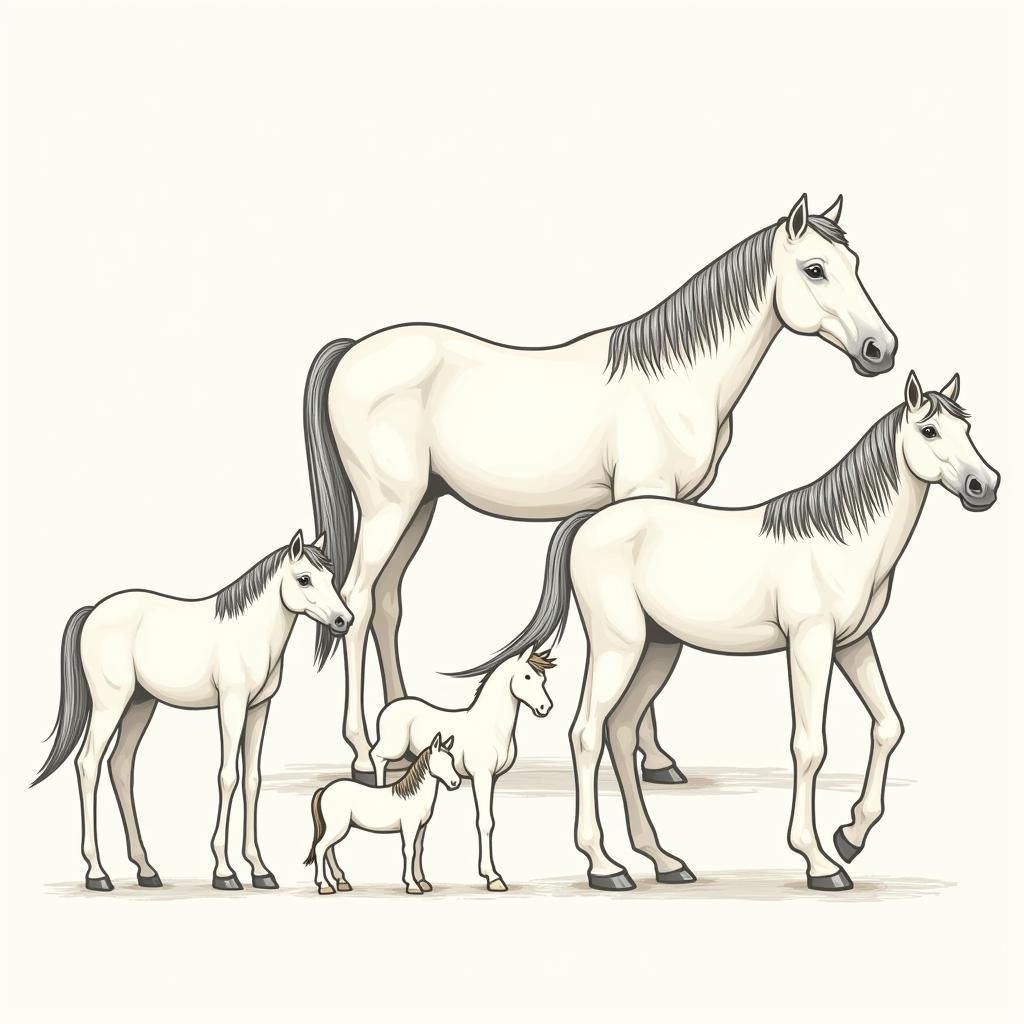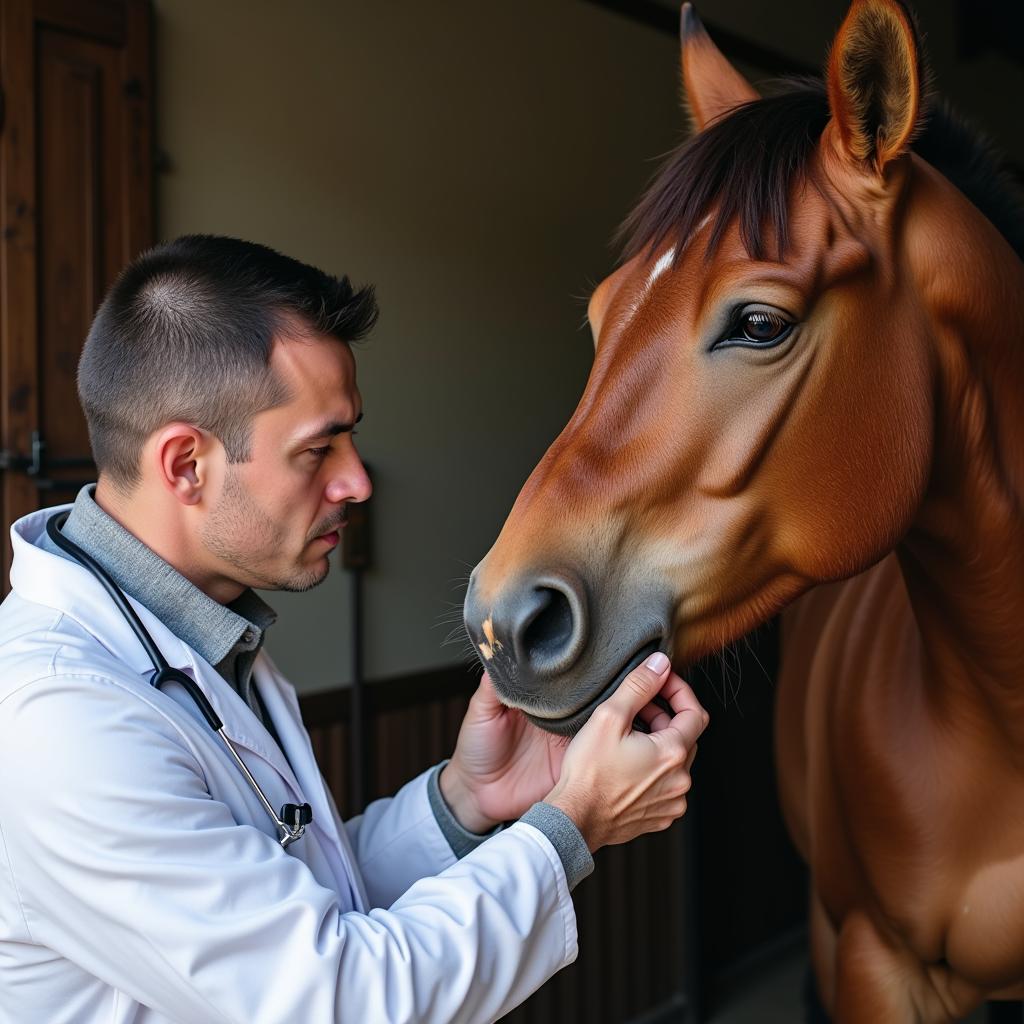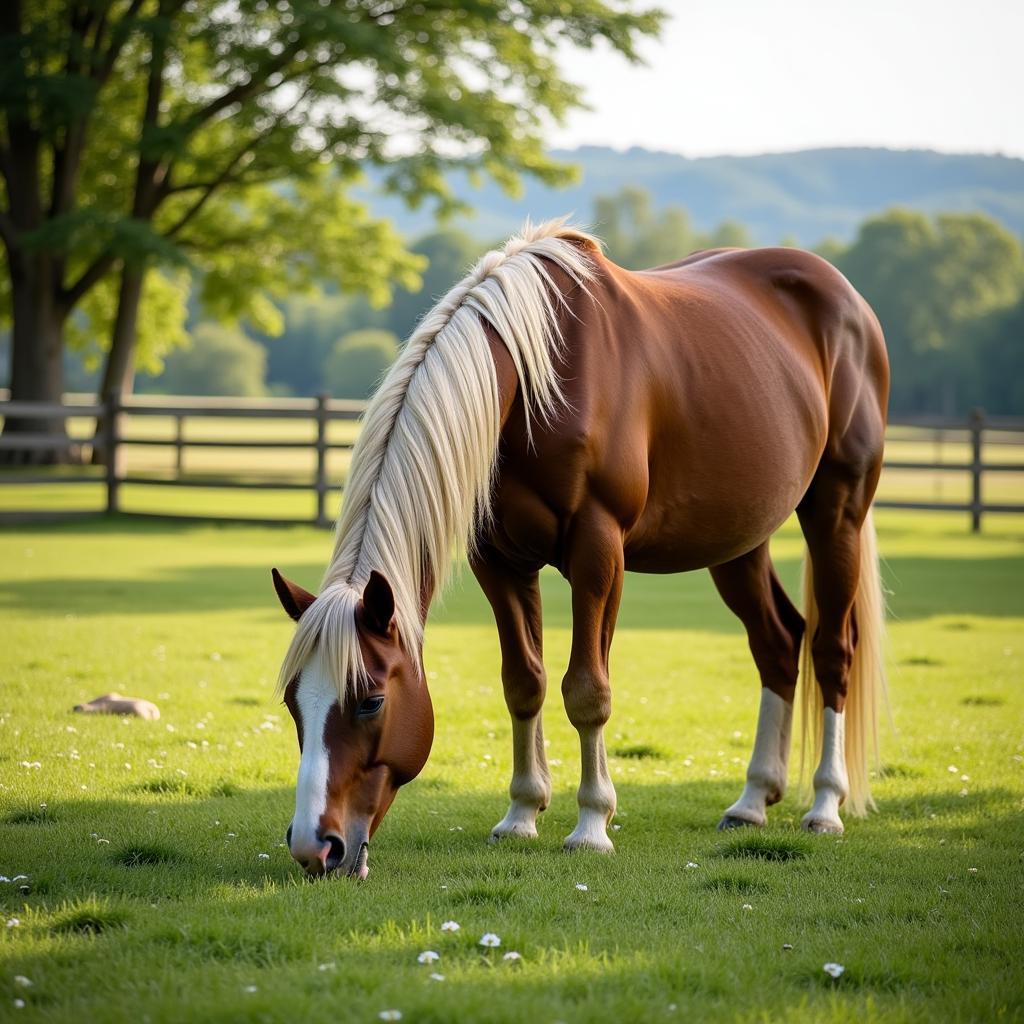For centuries, horse lovers have relied on a simplified formula – multiplying a horse’s age by seven – to grasp their beloved companions’ age in “human years.” However, this age-old comparison, while a charming concept, doesn’t quite capture the intricate nuances of equine aging. Let’s delve into the fascinating world of horse years and human years, separating fact from fiction and gaining a deeper understanding of how horses mature.
Unveiling the Truth About Horse Years
The idea of “horse years” stems from a desire to relate a horse’s lifespan to our own. While it’s true that horses age faster than humans, their developmental trajectory is far more complex than a simple multiplication can encompass.
 Horse Lifecycle Stages
Horse Lifecycle Stages
Equine veterinarians and researchers have developed more accurate charts that consider factors like breed, size, and individual development to provide a more realistic comparison between horse years and human years. These charts highlight that horses mature much faster in their early years, reaching the equivalent of adulthood earlier than humans.
Deciphering the Horse Years Chart
A horse’s first year of life is remarkably dynamic, akin to roughly 15 human years in terms of physical development and maturity.
Key Milestones:
- 1 year old horse: Comparable to a human teenager, reaching sexual maturity and often starting training.
- 2-3 years old: A horse reaches its full height and is considered a young adult, similar to a human in their early twenties.
After this rapid initial growth, the aging process gradually slows down but isn’t linear. A horse’s metabolism, lifestyle, and overall health significantly influence its aging rate, just as in humans.
 Veterinarian Examining Horse Teeth
Veterinarian Examining Horse Teeth
Beyond the Numbers: Factors Influencing Horse Lifespan
Just like humans, horses experience aging differently. Several factors beyond chronological age contribute to their overall well-being and lifespan:
- Nutrition: A balanced diet tailored to a horse’s age, activity level, and specific needs is crucial for their health and longevity.
- Healthcare: Regular veterinary checkups, vaccinations, and dental care play a vital role in preventing and managing health issues.
- Exercise and Mental Stimulation: Keeping horses active and mentally engaged is essential for maintaining their physical and mental well-being.
- Genetics: Some breeds are predisposed to certain health conditions that may impact their lifespan.
Caring for Horses at Every Age
Understanding the nuances of equine aging empowers horse owners to provide appropriate care throughout their horse’s life.
Tailoring Care to Different Life Stages:
- Foals and Yearlings: Require specialized nutrition, careful handling, and a safe environment for optimal growth and development.
- Young Adults: Benefit from consistent training, a balanced exercise routine, and regular veterinary care to support their active lifestyles.
- Senior Horses: May require dietary adjustments, tailored exercise programs, and increased attention to their overall comfort and well-being.
 Senior Horse Grazing Peacefully
Senior Horse Grazing Peacefully
Embracing the Journey Together
While the concept of “horse years” offers a starting point, recognizing the individuality of each horse and providing personalized care throughout their lifespan is paramount. By fostering a deep understanding of their unique needs and seeking guidance from equine professionals, we can ensure our equine companions enjoy long, healthy, and fulfilling lives.
FAQs about Horse Years
Q: Can you determine a horse’s exact age in human years?
A: While we can estimate based on charts and dental examinations, determining a horse’s precise age in human years isn’t possible. Factors like individual variation and environmental influences make it an inexact science.
Q: At what age is a horse considered “senior”?
A: Generally, horses over 20 years old are considered senior. However, this can vary depending on the horse’s breed, health history, and overall condition.
Further Exploration
For more insights into horse care and fascinating facts about these majestic creatures, explore these related resources:
Do you have any other questions about your horse’s care or well-being? Our dedicated team at Justus Horses USA is here to help! Contact us at 0772127271, email us at [email protected], or visit us at QGM2+WX2, Vị Trung, Vị Thuỷ, Hậu Giang, Việt Nam. We’re available 24/7 to assist you and your equine companion.